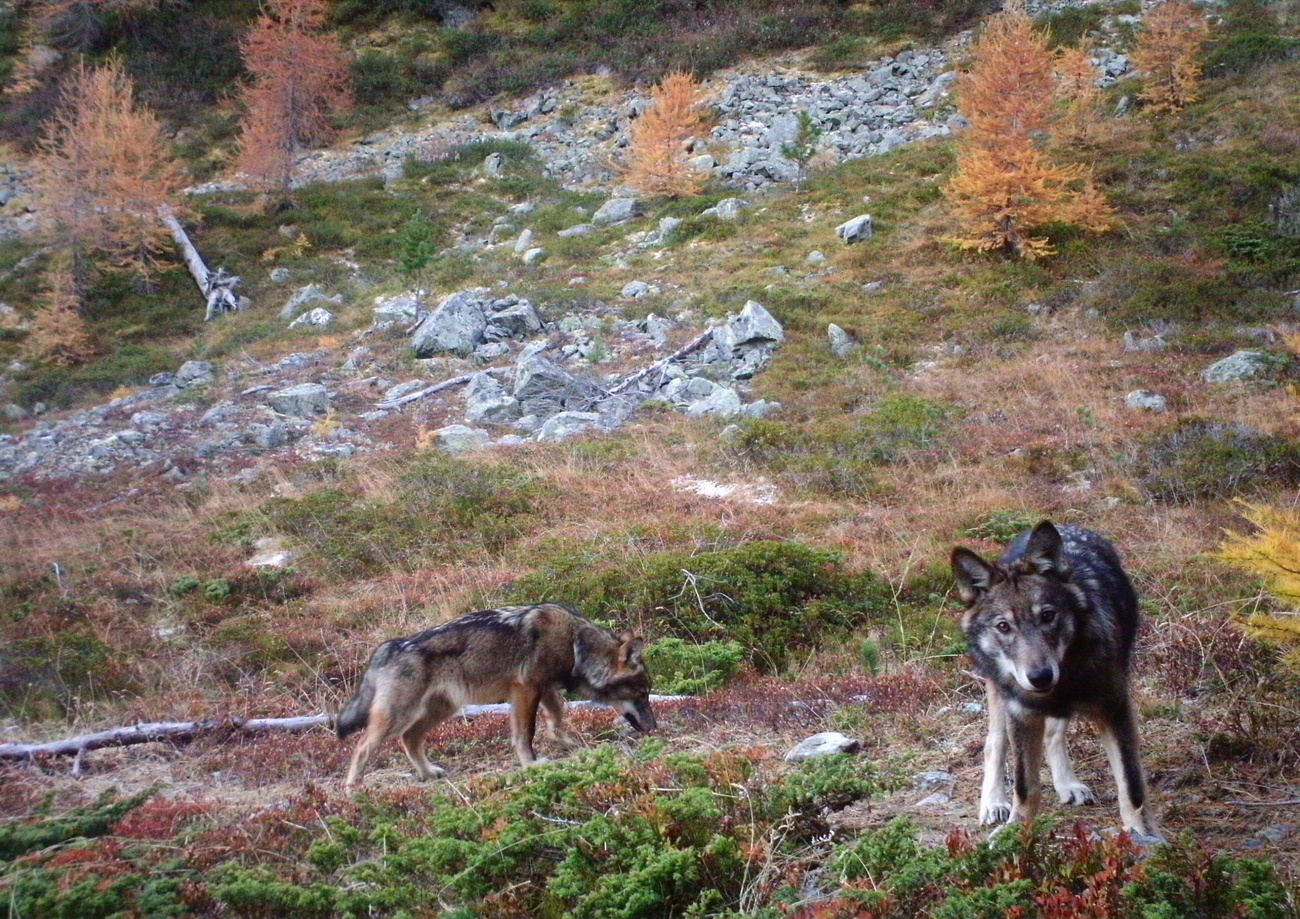
Nearly 50 wolves killed in eastern Switzerland over five-month period

Wildlife wardens in the eastern canton of Graubünden, together with hunters, shot 48 wolves between September 2024 and January 2025, in an effort to reduce attacks on livestock during the next grazing season, the canton said on Monday.
+Get the most important news from Switzerland in your inbox
The cantonal hunting and fishing office targeted a number of wolves, including the Fuorn pack based in the Swiss National Park. It believes this pack has now been completely eliminated.
Last October, nature conservation organisations submitted a petition signed by 37,000 people calling for the culling of the Fuorn pack to be abandoned. They argued that the decision to kill the entire pack was “totally disproportionate”, did not take account of the special status of the National Park, had not weighed up the interests at stake, and that no alternative solution had been sought.

More
How many wolves are good for Switzerland?
The Swiss National Park had asked the Federal Office for the Environment (FOEN) to hear its position on the request to eliminate the Fuorn pack. The FOEN declined to hear its opinion, the National Park said in a statement published on Monday. The park “deeply regrets that it has not been possible to find a more constructive solution that is also in line with the objectives of the National Park enshrined in federal law”.
Scientific knowledge
The National Park “is not fundamentally opposed to the culling of certain wolves causing damage and to regulation”, it added. However, the park believes that wolf management must be based on scientific knowledge. In its view, the culling of the entire Fuorn pack “constitutes a violation of the protection of natural processes in the National Park”.
+ Switzerland approves shooting of National Park wolf pack
For future wolf management, the Swiss National Park is calling for “greater knowledge of wildlife biology, greater protection for herds and, above all, more discernment”. It says it is ready to collaborate in this process on a scientific and technical level.
The Fuorn pack killed two cattle outside the National Park. However, the National Park’s research commission has pointed out that at least one of the two cattle was killed by a young wolf that was no longer part of the pack. The National Park is a strictly protected area. The wolves of the Fuorn pack could only be shot outside the boundaries of the park.
Two packs ‘no longer exist’
Canton Graubünden assumes that the Vorab and Fuorn packs “no longer exist”. The situation is not yet clear with regard to the Lenzenhorn pack, said Arno Puorger, head of the large predator division at the hunting and fishing office.
+ Switzerland criticised over wolf shootings
As for the six other packs (Stagias, Moesola, Calderas, Muchetta, Rügiul and Älpelti), 17 wolves were shot. A lone wolf was also killed in the Rheinwald region.
In 2024, 213 attacks (267 in 2023) on livestock were recorded in the canton, which counted 11.5 wolf packs. Three cross-border packs are counted as half a pack, says the office. Three new packs were formed. The office noted the presence of around 70 cubs in the packs.
Regulation shooting authorised by the FOEN
The FOEN gave the go-ahead for the regulation shootings in Graubünden. Forty-four wolves were shot by wildlife wardens, the other four by hunters. Hunters had to attend an information evening before they could take part in the controlled shootings.
According to the canton, proactive regulation is necessary to reduce attacks during the grazing season. The aim is to achieve a sustainable co-existence between human and wolf. Despite a higher number of shots than in 2023, the wolf population “remains secure”, according to the FOEN.
What is your opinion? Join the debate:
Translated from French with DeepL/gw
This news story has been written and carefully fact-checked by an external editorial team. At SWI swissinfo.ch we select the most relevant news for an international audience and use automatic translation tools such as DeepL to translate it into English. Providing you with automatically translated news gives us the time to write more in-depth articles.
If you want to know more about how we work, have a look here, if you want to learn more about how we use technology, click here, and if you have feedback on this news story please write to english@swissinfo.ch.

In compliance with the JTI standards
More: SWI swissinfo.ch certified by the Journalism Trust Initiative





























You can find an overview of ongoing debates with our journalists here . Please join us!
If you want to start a conversation about a topic raised in this article or want to report factual errors, email us at english@swissinfo.ch.